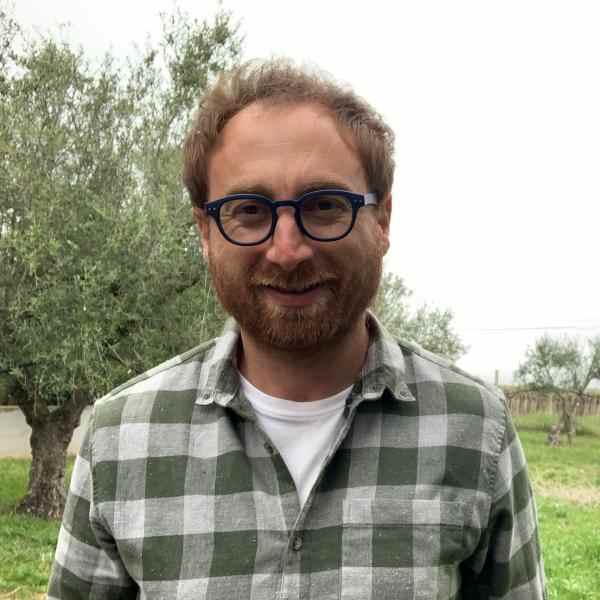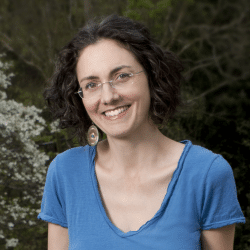Introduction
Giuseppe is restoring trust amongst farmers who are socially isolated because of a low level of education and networking skills. By building networks of small farmers, he is developing a suite of skills and strategies that lead to economic sustainability and enabling them to approach policymakers with a common voice. Farmers are thus guided towards a change of perspective in their work, and to see themselves as not mere producers but custodians of a territory and its traditions.
The New Idea
The Italian agricultural context is characterized by an aging workforce, high rates of exploitation of workers, low levels of traditional education and lack of cooperation among farmers. Small-scale farmers encounter great difficulties in identifying the most suitable strategies for their needs and professional growth.
Giuseppe identifies in the lack of community connections the main cause of small farmers’ harsh financial and living conditions. He also recognizes how critical human relationships are the first step to triggering a change, which allows him to rethink the agricultural sector and the rural context. Giuseppe founded Vazzap, with the aim to create a pathway that enables farmers to overcome the competitive mindset that prevents them from connecting to each other.
He encourages farmers to open their homes to other farmers to celebrate and share the places and products of their work. Giuseppe comes from a farming background and knows the social dynamics occurring in the Italian countryside. He believes that the setting of a home dinner is the best situation to increase trust and facilitate a dialogue. Each dinner has a range of 20 to 60 participants where farmers meet side by side with other stakeholders such as city majors, regional government representatives and local business owners. The events are held in farmyards, where benches are made of hay bales. Giuseppe creates a setting that makes farmers proud of their home and more likely to invite in their neighbors. Surveys are distributed to all the participants which collect data about motivation, opportunities and threats, as well as perception of markets and policies. The data gained from the events is used to create targeted trainings that Vazzap co-creates with farmers. Giuseppe supports networking opportunities and also helps to create multidisciplinary round tables with experts and stakeholders to develop advocacy skills. This enables farmers to obtain the necessary tools to innovate in their production methods while also promoting traditions of the territory of which they are custodians.
Dinners are just an excuse to facilitate a motivational experience that eventually leads to collective decision making, which increases the level of trust and starts new collaborations. According to Giuseppe’s experience, being invited for dinner to a “colleague’s house” is highly motivating. It’s the right leverage to start new conversations and collaborations. Also, dinner time is the only right time for a farmer to attend a meeting, as any other time of the day they work. This is also why when events around farming and agriculture are organized during working hours by people who do not work in the field, they register very low attendance.
By developing a platform which allows farmers to share their lives and products, Giuseppe is restoring recognition of and admiration for farmers’ work. The method developed by Giuseppe allows farmers to be included in a path of trainings, meetings and partnerships building designed to be compatible with the pace and times of rural life.
Often, farmers themselves discourage their children from continuing in the family business. They want them to create a future elsewhere, believing that this will give them better opportunities and life prospects. Giuseppe aims to create a cultural change through which farmers become the key players that reverse the trend towards emigration from rural to urban areas, creating opportunities for young people to stay.
The work carried out by Giuseppe has created a network of farmers, experts and institutions that work in a holistic way on different aspects of agriculture such as subsistence farming, market development, crop cultivation, commercial plantation, and livestock rearing. His aim is to break up those conventional practices such as individual search for public funds that become fertile ground for situations such as exploitation, emigration and low economic sustainability. Only through a collective response, will farmers be able to dent such complex social and environmental challenges. This requires trust among peers, which Vazzap is built to achieve.
The Problem
The depopulation of rural areas is a global challenge. Low levels of economic opportunity, the lack of public investment, and the lack of value placed socially on agricultural work and isolation are some of the main factors at play.
Farmers in Southern Italy face economic uncertainty. According to the latest reports from the FAO, individual farmers are pushed by retailers and policymakers alike to lower their prices and increase their output. Agricultural policy is made without their input and often favors large landowners. The price pressures and focus on economies of scale create competitive behaviors and mindsets that trickle down to small-scale farmers. Small producers tend to position themselves in the market so competitively that they essentially undermine the economic sustainability of their work. This leads to a lack of collaborative sharing of the means of production, which exacerbates individual farmers’ expenses. The Italian agricultural context in particular is also characterized by a lack of cooperation among farmers, low levels of education and a high median age of farm owners, all of which tend to frustrate innovative market strategies. This increases the tendency of young people to emigrate from rural areas and triggers the exploitation of the most vulnerable individuals that are ready to step in: migrants who are often undocumented and are not able to report abuse and exploitation.
The agriculture industry in Italy is characterized by rather low levels of education: the latest ISTAT agricultural census showed that over 30% of the farm managers did not continue their studies beyond primary school. Furthermore, there is a shortage of farm managers with an institutional course of study in the field: only 3% of the total studied at a high school specialized in agriculture and only 1% have a degree in agriculture.
According to the 2019 Italian report on migration, in almost 10 years, around 500,000 Italians, half of them between the ages of 15 and 34, have left Italy. The south is also characterized by a migratory phenomenon towards northern Italy: it is estimated that between 2002 and 2017, more than 2 million people emigrated from southern Italy, 132,187 of which did so in 2017.
Every farmer in the European Union receives a subsidy of 260 euros per hectare of agricultural land if they meet all environmental and sustainability requirements. The more land a farmer owns, the more the subsidy they receive. The application of this market strategy to the agricultural sector coincided with the application of intensive cultivation methods, which benefitted large retailers more than producers and consumers.
According to the Italian National Institute of Statistics, over the course of a generation, Italy has lost 28% of farmland. This is influenced by fewer young people taking up farming.
Furthermore, this problem is exacerbated in the South by a phenomenon that came to be known as Caporalato, the illegal recruitment of migrant workers from Burkina Faso, Ghana, and the Ivory Coast by intermediaries usually affiliated with organized crime. Agricultural workers are found and managed by so-called corporals who hire workers for a short period. They do not respect the systems of laws in place for employment and the rights of workers. The Caporalato is widespread throughout the Italian territory, particularly in the fruit and vegetable sectors of the South. The corporal hires the laborers on behalf of the owner and establishes their remuneration, of which they keep a percentage, paid to them by the owner and by the recruited laborers. The salaries paid to workers are considerably lower than those of the regulatory tariff and often lack the payment of social security contributions.
Many factors encourage the Caporalato phenomenon, including a culture of distrust for the state, very high cost of labor, the difficult conditions of the agricultural market and the consequent unstable economic sustainability, which exacerbates lack of cooperation and the sharing of means of production.
The Strategy
Giuseppe has created a three-pronged strategy that upskills farmers and connects them to their stakeholders. He does this by identifying the needs of the farmers, developing relationships between them, and incorporating them into training course and professional opportunities.
He acts not as a consultant but instead as a famer himself when he first engages participants. He understands their perspective because he himself lived a life that was similar to theirs. Shared experience enables Giuseppe and his team to build the trust needed to implement the Vazzap strategy. He explains that his role in the gatherings is for free. He explains that the events he organizes take place in the farmyard of one of the farmers participating in the event. They normally accept his proposal with enthusiasm. This is a first step to break down the walls of a mindset that make interactions between farmers difficult.
During the dinner, Giuseppe uses a questionnaire to collect data on famers’ needs, including their motivations, opportunities, threats and perception of the markets. The results are then converted into a document that will provide an opportunity for farmers to participate in collective action such as lobbying for better regional and/or national agricultural policies.
Each of the Farmers’ dinners or Contadinner, brings together 20 to 60 people including farmers and external stakeholders such as local mayors, regional governors, restaurant owners, and grocers. Giuseppe started his program in Puglia, his home region, with 20 farmhouses. Four hundred farmers in the province of Foggia participated. Results collected by the University of Foggia have now shown that Giuseppe’s work led to a +308% in the number of connections and +250% in social network density1. In addition, there is evident improvement in the quality of the social connections, especially in cases where there are direct engagements within Vazapp.
Giuseppe’s idea is currently being replicated throughout the Puglia region and in other Italian regions. So far, he with the aim of reached 100 dinners, 2,000 farmers and more than 3,000 participants.
Giuseppe wants to overcome the dichotomy between city and country dwellers and to educate the urban population on rural issues. He also wants to provide farmers access to cultural activities. For this reason, Giuseppe includes in his strategy a series of gastronomic-cultural events such as the Country Food and Drink Fair based in farming communities and open to city dwellers (over two thousand participants). To build on farmers’ collaborations, Giuseppe invites them to share their products at farmers markets and festivals, as well as to open new market opportunities.
Interactions with various actors of the food chain led Giuseppe to understand the importance of promoting relations between producers, restaurant and hotel managers. Giuseppe realized that small farmers often do not have the knowledge or training to promote what they produce, and restaurant managers often do not have the necessary connections to access quality local food distribution channels. Giuseppe also implemented a network that led to partnerships between farmers and local tourist agencies which enabled farmers to become spokesmen for their land and their products.
In order to make rural areas fertile ground for the development of new ideas, Giuseppe gives life to a plurality of paths ranging from training, to building a network, to supporting entrepreneurial ideas.
The need to provide training opportunities arises from the alarming data provided by Eurostat, which states that only 3% of managers in the agricultural sector have training related to the sector. Giuseppe proposes a series of training courses dedicated to those who want to approach the agricultural sector and to those who already work in the field. By surveying their needs, he is able to provide them with new skills to innovate in harmony with the environment. He is also empowering farmers by connecting them with people who don’t know about farming but want to learn. This validates the farmers’ work and experience even more.
Dinners are just one part of Giuseppe’s strategy. An ad-hoc path is created, in which young farmers meet professionals capable of helping them to structure their new ideas. For each farmer, Giuseppe manages to have 10 professionals (social media managers, communications expert, graphic designers) ready to use their abilities to offer holistic support, connecting in total 20 farmers and 80 stakeholders during each meeting.
Giuseppe is now developing an international network of 40 partners ( 37 from Europe, of which only 6 are Italian) to set up as a research center and a space for workshops on sustainable development in which young people will find support in developing entrepreneurial ideas in rural settings.
The problems afflicting the Italian rural sector is shared by many farmers in the world. The work carried out by Giuseppe is highly replicable and is already demonstrating high potential for scalability. After testing with success his model in Italy, Giuseppe began in 2019 to cross national borders. He proposed his method in France and Colombia, where he is now replicating it.
Vazapp is a non-profit organization. To date, the work carried out by Giuseppe has been made possible thanks to a dense network of contacts and partnerships with private and public actors, including the European Union and the Puglia Region government. Giuseppe is in regular talks with the Italian Minister of Agriculture who asks for his advice to develop further rural strategies. For example, he has been asked to develop a rural hub for young farmers to help them with technology and innovation, and he is sitting on the panel for renewing the country’s agricultural policies. Thanks to his knowledge on the ground, he has been also engaged by the biggest Italian private Foundation to write calls for projects aimed specifically for farmers.
As of today, Giuseppe has developed a network of more than 1400 farmers and 1200 stakeholders. He has created a database that encompasses the needs of the farmers involved, which has made it possible to carry out advocacy actions. He is replicating his idea in 10 Italian regions through local organizations, and he is now implementing an open source online tool to spread his method. Having refined his method in Puglia and central Italy, Giuseppe is currently taking the first steps to export his method across the border: in France, elsewhere in Northern Europe, and Colombia. Giuseppe has established partnerships with local organizations that are now replicating his model such as the Federaciòn Columbiana de los municipios (the Associations of Columbia’s cities) and SIMA in France.2 He is now implementing a social licensing strategy opening up the organizations of the Contadinner to any farmer worldwide through an open-source model inspired by TedX (not organized directly by Ted but inspired by the model).
The Person
Giuseppe Savino was born in Puglia to a family of farm workers. Although he experienced difficult living conditions from a young age, he grew up developing a great love for rural life.
A priest in his village noticed his strong emotional intelligence. Tasked with bringing children from isolated rural areas to Sunday School, this priest convinced Giuseppe’s family to enroll him in the seminary. This enabled him to continue his studies for free. After years of study, he enrolled in a prestigious high school, where he was surrounded by the children from the region’s richest families. It was in those years that Giuseppe discovered his entrepreneurial spirit. Giuseppe exploited his great social skills by beginning to offer his services as a birthday party organizer for his schoolmates. Soon he became the go-to expert for all the youth events of the area, including large parties that gave him his first income. He did not continue his path to become a priest.
After starting a small pub in a rural town, Giuseppe yielded to the strong pressures of his family and local culture and left his chosen path to find a job with a permanent contract. This was a symbol of emancipation from the economic instability that had always afflicted his family. Realizing that the life his parents wanted for him did not make him happy, Giuseppe began to strongly feel the desire to return to country life. That was when he met Don Michele: a Salesian priest who encouraged him to listen to himself and his love for his land. Don Michele encouraged young people not to abandon their land, and he inspired Giuseppe to reconcile with himself.
In those years Giuseppe rediscovered how his great ability to understand human relationships and his experience as an event organizer could be used as the keys to provoke change locally. He could bring young people back to believing in the values of - and in the possibility of a future in - their own land.
Despite the strong pressures from friends and relatives, Giuseppe decided to return to farming, making his experiences the starting point for a project that seeks to undermine the mechanisms that force farmers to live a life of isolation and sacrifice.
The name Giuseppe gave to his organization comes from a pun that represents the relationship between innovation and technology in agriculture. When Giuseppe tried to convince his father to communicate via smartphone with an application called WhatsApp, the father’s response was to invite his son to “go and hoe the land”, which in Italian sounds more or less like vazzapp (Va a zappare). The name stuck, as did Contadinner the name given to his farmers’ dinners, which blends the traditional word for farmer contadino and the trendy tendency not to have cene but instead dinners.




